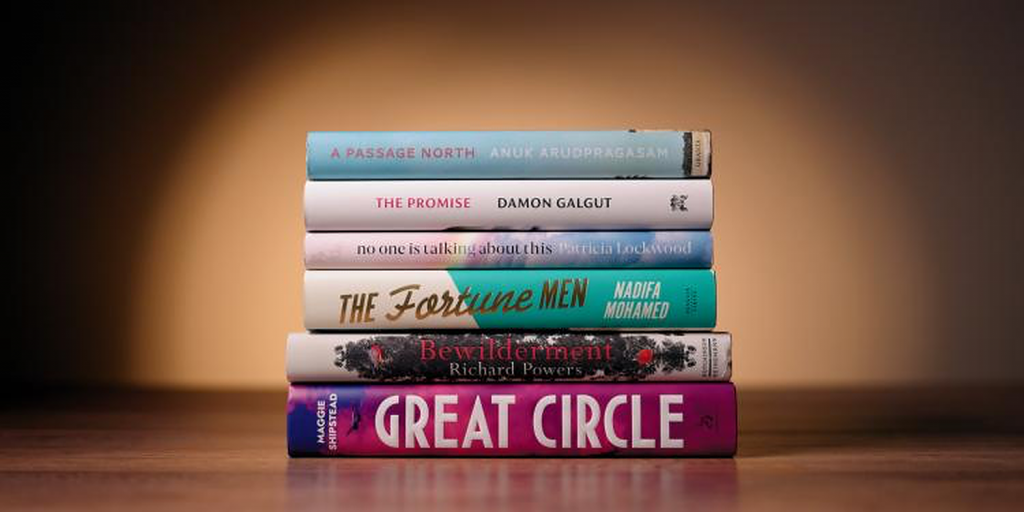2021 Booker Prize shortlist in review

Catherine Stone discusses the 2021 Booker Prize shortlist and outlines the prize’s significance within literary history.
The Booker Prize is the most respected and internationally recognised literary prize for a work of fiction. In contrast to the Nobel and Neustadt prizes for literature which praise authors for whole bodies of work, the Booker Prize rewards a single new release book published in the year, catapulting authors into the world of literary fame alongside previous winners.
The shortlist is read and discussed passionately throughout the world, from every Mum’s book group to a dedicated Radio 4 programme, and the prize’s ceremony is the Oscars of the literary world. The exposure and status of the winner is guaranteed to be high, with a prize of £50,000 (£2500 for the shortlisted authors, with a bespoke handbound edition of your book). Almost every shortlisted book experiences a so-called ‘Booker bounce’, where book sales increase dramatically – Shuggie Bain, the 2020 winner, sold 25,000 copies in the week after the prize was announced, topped the bestseller lists and was named book of the year.
Almost every shortlisted book experiences a so-called ‘Booker bounce’, where book sales increase dramatically
Created in 1969 as a counterpoint to the French Prix Goncourt, the Booker Prize aimed to celebrate and stimulate the very best in contemporary English novel writing and promote the value of literature. And it has succeeded: some of the most famous books in the last 50 years were recognised as exceptional and won the prize in their first year of publication, such as Life of Pi (2002), Wolf Hall (2009), The Ghost Road (1995), Remains of the Day (1989), Midnight’s Children (1981), The God of Small Things (1997) and Disgrace (1999). But what is literary merit and how can it be measured? The Booker Prize is the only award that requires the judges to each read all 150 entries, so the full range is considered. The judge’s taste and experience in fiction and their interpretation of the scope and purpose of literature are important, as noted by judge chair Maya Jasanoff.
Literary merit has historically been based on Western tastes and standards, originally only consisting of novels by British authors. The prize was opened to English language writers of any nationality in 2014, while the International Booker Prize rewards novels translated from a foreign language. This has greatly increased the prize’s number of styles and literary traditions and is helping to move away from a narrow definition of ‘good literature’. Kazuo Ishiguro, in his Nobel prize speech, expressed his desire for improving ‘one small corner’ of the world by embracing greater diversity in the ‘new, sometimes bewildering ways, to tell important and wonderful stories’.
This year’s shortlist is contemplative, immersive, and thought-provoking, with striking themes of life, death, trauma, loss and justice that echo the pandemic’s atmosphere
This year’s shortlist is contemplative, immersive, and thought-provoking, with striking themes of life, death, trauma, loss and justice that echo the pandemic’s atmosphere. The shortlist is very strong, showcasing diverse places and experimental styles. No-one is Talking About This navigates the effects of social media as well as devastating family loss through, as Booker Prize judge Rowan Williams puts it, the ‘uncompromising medium of online prattle’. The list also includes historical fiction – The Fortune Men and The Promise, which explore injustice in 1950’s Cardiff and apartheid South Africa respectively. The Passage North is a harrowing and emotional reflection on the Sri Lankan civil war. Bewilderment by Richard Powers is about a scientist’s life with his neurodivergent son, a powerful story that questions authority and the status quo. Like his previous Booker-shortlisted novel The Overstory, Power’s new novel tackles the theme of environmental crisis, which has never been more strongly relevant. Maggie Shipstead’s novel, The Great Circle, ties together the stories of a wartime female fighter pilot and a 21st century actress in profound ways.
While Booker-shortlisted works often do well commercially, the prize is by no means automatically awarded to the most popular books of the year, as exemplified this year by Ishiguro’s wildly popular Klara and The Sun being left off the list. The Sweetness of Water by Nathan Harris, which is about the US civil war, slavery, and forbidden gay love, was also expected to make the shortlist but didn’t. Both Sally Rooney’s Beautiful World, Where Are You, which explores privilege and class in her trademark claustrophobic tone, and Rachel Cusk’s Second Place, a driven psychodrama focusing on relationships, failed to live up to the booker judges’ standards this year.


